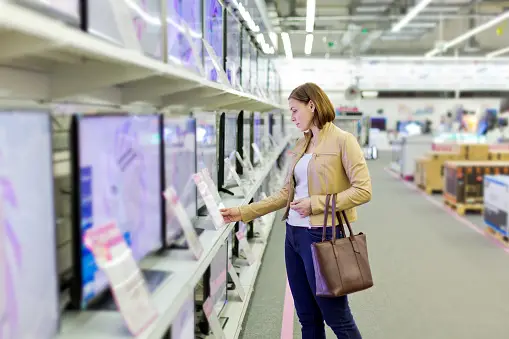Learn how you can tap into the full benefits of privacy and use that to navigate the challenges of the current world.
The Power of Privacy: Why Keeping Your Life Private Is Essential in Today's World
In the age of social media and constant connectivity, the concept of privacy seems like a fading relic of the past. Our lives are increasingly documented, shared, and open for public scrutiny. However, amidst the pressure to curate the perfect online persona, the importance of maintaining a private space has never been greater. This article delves into the compelling reasons why safeguarding your privacy is crucial for your mental well-being, security, and overall sense of self.
Protecting Your Mental Fortress: The Benefits of Privacy for Your Wellbeing
- Reduced Stress and Anxiety: The constant pressure to maintain a meticulously crafted online image can be a significant source of stress and anxiety. By keeping certain aspects of your life private, you free yourself from the burden of external validation and the fear of judgment. This allows you to focus on your inner world and cultivate a sense of peace and self-acceptance.
- Enhanced Self-Awareness and Reflection: Privacy creates a space for introspection and self-discovery. When you disconnect from the digital world and its constant stream of external stimuli, you have the opportunity to engage in meaningful self-reflection. You can explore your thoughts, feelings, and motivations without the influence of external opinions.
- Cultivating Stronger Relationships: Meaningful relationships thrive on authenticity and vulnerability. Oversharing on social media can create a superficial connection, while privacy allows for deeper, more personal interactions. When you share personal experiences with trusted individuals in private settings, it fosters stronger bonds and a greater sense of intimacy.
- Maintaining Personal Boundaries: Privacy empowers you to establish and maintain healthy boundaries between your personal life and the outside world. By selectively choosing what you share and with whom, you protect your emotional and mental space, preventing information overload and unwanted intrusions.
Safeguarding Your Security: Mitigating Risks in a Digital World
- Enhanced Online Safety: Oversharing personal information online exposes you to a variety of security risks. From identity theft and cyber stalking to targeted scams and online harassment, maintaining privacy minimizes your digital footprint and reduces the vulnerability of your personal details.
- Protecting Your Reputation: The internet has a long memory, and things posted online can resurface years later, potentially impacting your personal and professional life. By being mindful of what you share, you have more control over your online reputation and prevent potentially damaging information from jeopardizing your future opportunities.
- Maintaining Privacy in Relationships: Oversharing details about your relationship online can create unnecessary tension and drama. Privacy allows you to nurture your relationship within the confines of intimacy, fostering trust and avoiding unwanted external interference.
- Protecting Your Loved Ones: In today's digital world, even information about your loved ones can be misused. By exercising caution about what you share online, you safeguard their privacy and minimize the potential for online harassment or exploitation.
Beyond Security and Wellbeing: The Value of Privacy for Personal Growth
- Preserving Autonomy and Freedom: Privacy is a cornerstone of personal autonomy. It allows you to make your own choices about your life without the pressure of conforming to societal expectations or seeking external approval for your decisions.
- Fueling Creativity and Innovation: A private space fosters creativity and innovation. When you are free from the constant observation of the outside world, you can explore ideas, experiment with different approaches, and pursue your passions without fear of judgment or public scrutiny.
- Nurturing Authenticity: Privacy allows you to be your authentic self. When you are not constantly curating an online image, you can embrace your true self with all your flaws and imperfections. This self-acceptance is fundamental for personal growth and building genuine connections.
- Embracing Mystery and Discovery: Keeping some aspects of your life private adds an element of mystery and intrigue. It allows for a sense of discovery in relationships, where people get to know you through genuine interactions rather than through meticulously crafted online personas.
Finding the Right Balance: Privacy in a Connected World
The digital age has ushered in an era of unprecedented connectivity. Social media platforms, messaging apps, and constant internet access have blurred the lines between public and private lives. While these technologies offer opportunities for connection, self-expression, and information sharing, the constant exposure can be overwhelming and detrimental to our sense of privacy. This article explores the delicate dance between embracing the benefits of a connected world and safeguarding your privacy for a fulfilling and secure digital existence.
The Allure of Connection: Why We Share
The human need for connection is a fundamental driver of our social media behavior. We share experiences, thoughts, and feelings to connect with friends and family, build communities, and seek validation. Social media platforms capitalize on this desire, providing a seemingly effortless way to stay connected and share updates across vast distances.
- Building a Sense of Belonging: Sharing on social media allows us to feel like we belong to a community, be it with friends, colleagues, or people with similar interests. Liking, commenting, and interacting with others' posts fosters a sense of camaraderie and shared experiences.
- Self-Expression and Identity Development: Social media platforms provide a platform for self-expression, allowing us to share our thoughts, ideas, and experiences with the world. This can be a valuable tool for personal growth and identity development, particularly for younger generations who are navigating their sense of self.
- Documentation and Memory-Making: The ability to document our lives through photos, videos, and stories allows us to create a digital scrapbook of memories. This can be a cherished way to revisit significant moments and share them with loved ones.
- The Power of Influence and Inspiration: Sharing success stories, creative endeavors, or inspirational quotes can empower and motivate others. Social media can act as a platform for positive social change and community building.
The Erosion of Privacy: The Downsides of Oversharing
While the benefits of connection are undeniable, the relentless sharing culture can have significant drawbacks. Oversharing personal information online exposes you to a multitude of risks and can negatively impact your well-being.
- Reduced Mental Well-being: The pressure to maintain a curated online persona can be a source of significant stress and anxiety. The constant comparison game and the fear of judgment can negatively impact self-esteem and mental health.
- Security Risks and Identity Theft: Sharing personal information like your address, date of birth, or financial details online increases your vulnerability to identity theft, cyberstalking, and targeted scams. Criminals can exploit this information for malicious purposes.
- Reputational Damage: The internet has a long memory, and things posted online can resurface years later, potentially impacting your personal and professional life. A reckless comment or inappropriate photo from your teenage years could haunt you in your future career.
- Relationship Strain and Conflict: Oversharing details about your relationship online can create tension and jealousy. Additionally, sharing private disagreements or arguments publicly can exacerbate existing conflicts.
Striking the Right Balance: Cultivating a Healthy Relationship with Technology
The key to navigating the digital age lies in finding a balance between enjoying the benefits of technology and safeguarding your privacy. Here are several strategies to cultivate a healthy and secure online presence:
- Be Mindful of What You Share: Before hitting "post" or sending a message, take a moment to reflect. Ask yourself if the information you're sharing is something you would feel comfortable sharing with everyone you know, or even everyone in the world.
- Manage Your Privacy Settings: Most social media platforms and online services offer comprehensive privacy settings. Take the time to explore these settings and customize them to control who sees your information and what kind of content they can see.
- Practice Selective Sharing: Social media platforms can be compartmentalized. Consider creating separate accounts for personal and professional use. This allows you to curate content that aligns with each specific audience.
- Embrace Disconnection: Technology can be a powerful tool for connection, but it's vital to take breaks from the constant stimulation of the digital world. Schedule time to disconnect from social media and reconnect with yourself and the real world around you.
- Curate Your Online Footprint: Regularly review your online presence and take steps to remove or adjust past posts that you no longer feel comfortable with. Additionally, be mindful of the information you share on third-party websites and applications.
- Be Wary of Location Sharing: Many social media platforms and apps offer location-based features. Be cautious about enabling these features, as they can reveal your whereabouts and compromise your privacy.
- Strengthen Your Passwords: Use strong and unique passwords for all your online accounts. Consider utilizing a password manager to help you keep track of complex passwords.
- Be Sceptical of Online Requests: Be wary of unsolicited messages, emails, or friend
Conclusion
Embracing technology and fostering connections in the digital age are valuable experiences. However, safeguarding your privacy is equally important for your mental well-being, security, and sense of self. By implementing the strategies outlined above and prioritizing mindful online behaviour, you can strike the perfect balance. Remember, a healthy digital life revolves around conscious choices, responsible sharing, and protecting your private space. This allows you to enjoy the benefits of technology while maintaining control over your online presence and fostering a fulfilling digital experience. Disconnecting to reconnect, sharing selectively, and prioritizing security empower you to navigate the online world with confidence and create a digital space that reflects your authentic self.








.webp?locale=en)

















